Related Research Articles
Yakuza, also known as gokudō, are members of transnational organized crime syndicates originating in Japan. The Japanese police and media, by request of the police, call them bōryokudan, while the yakuza call themselves ninkyō dantai. The English equivalent for the term yakuza is gangster, meaning an individual involved in a Mafia-like criminal organization.
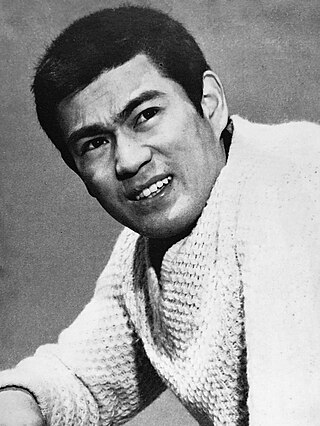
Shinichi Chiba, known internationally as Sonny Chiba, was a Japanese actor and martial artist. Chiba was one of the first actors to achieve stardom through his skills in martial arts, initially in Japan and later before an international audience.
Kintarō is a folk hero from Japanese folklore. A child of superhuman strength, he was raised by a yama-uba on Mount Ashigara. He became friendly with the animals of the mountain, and later, after catching Shuten-dōji, the terror of the region around Mount Ōe, he became a loyal follower of Minamoto no Yorimitsu under the new name Sakata no Kintoki. He is a popular figure in Bunraku and kabuki drama, and it is a custom to put up a Kintarō doll on Boy's Day in the hope that boys will become equally brave and strong.
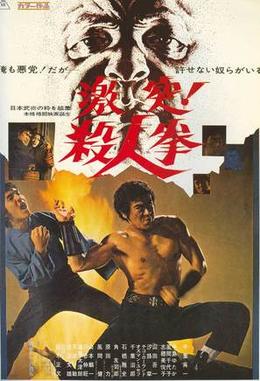
The Street Fighter, originally titled in Japan as Gekitotsu! Satsujin-ken, is a 1974 Japanese martial arts film produced by Toei Company, directed by Shigehiro Ozawa, and starring Sonny Chiba. It was released in the United States by New Line Cinema and became one of the first films to be a commercial success for the distributor. It is notable as the first film to receive an X-rating in the US solely for violence.

Shonan Junai Gumi is a Japanese manga series written and illustrated by Tooru Fujisawa. It was published in Kodansha's Weekly Shōnen Magazine from October 1990 to October 1996, compiled in 31 tankōbon volumes. A 15-volume bunkoban edition was released from May to December 2005. The story follows the youth of Eikichi Onizuka and his best friend Ryuji Danma while they are still in high school but have already formed their shock duo the Oni-Baku Combi.

Masutatsu Ōyama, more commonly known as Mas Oyama, was a South Korean karate master who founded Kyokushin Karate, considered the first and most influential style of full contact karate. Oyama was an ethnic Korean; he was born Choi Yeong-eui and spent most of his life in Japan. He acquired Japanese citizenship in 1968.

Dragon Princess is a 1975 karate film directed by Yutaka Kohira.
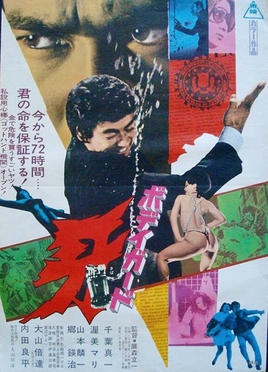
Karate Kiba or Bodyguard Kiba (ボディガード牙) is a 1973 Japanese martial arts film starring Sonny Chiba. It is based on an action manga by Ikki Kajiwara.

Golgo 13: Assignment Kowloon is a 1977 Japanese-language action thriller film starring Sonny Chiba as the international assassin Golgo 13. It is the second live-action movie based on the manga series Golgo 13, after the eponymous 1973 Japanese–Iranian film starring Ken Takakura.

Sister Street Fighter, original titled in Japan as On'na Hissatsu-ken, also released in the United Kingdom as Revenge of the Dragon, also released in Germany as Die Karate Tiger is a spin-off of The Street Fighter (1974). The plot revolves around Lǐ Hóng-Lóng, the female martial artist of the title. When her brother Lǐ Wàn-Qīng is kidnapped by drug lords, she seeks revenge. The drug lord's colorful collection of "killers" includes a toga-clad group of Thai Boxers called the "Amazons Seven", along with representatives of almost every martial art. Hóng-Lóng breaks into the drug lord's compound with the help of Seiichi Hibiki and other members of the Shorinji Kempo dojo. After all of his minions are defeated, the drug lord himself battles Hóng-Lóng, wearing a steel claw in imitation of Han, the villain from Enter the Dragon (1973). This was the first in a trilogy of films. It was followed by Sister Street Fighter: Hanging by a Thread (1974) and The Return of the Sister Street Fighter (1975), each with Shihomi as star.

Hokuriku Proxy War is a 1977 film directed by Kinji Fukasaku and starring Sonny Chiba and Hiroki Matsukata.

Etsuko Shihomi, now known by her married name Etsuko Nagabuchi, is a Japanese actress who appeared in several Japanese martial arts films and samurai film and TV productions of the 1970s and 1980s.
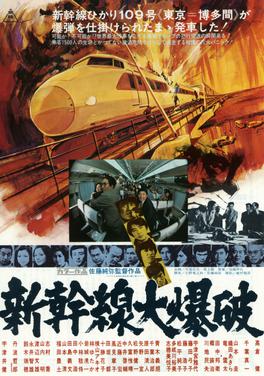
The Bullet Train is a 1975 Japanese action thriller film directed by Junya Satō and starring Ken Takakura, Sonny Chiba, and Ken Utsui. When a Shinkansen is threatened with a bomb that will explode automatically if it slows below 80 km/h unless a ransom is paid, police race to find the bombers and to learn how to defuse the bomb.
Nenji Kobayashi is a Japanese actor. He won the award for best supporting actor at the 23rd Japan Academy Prize for Poppoya.

Dog Days is a Japanese anime television series created by Masaki Tsuzuki, also known for his work as creator of Magical Girl Lyrical Nanoha and produced by Seven Arcs and Aniplex under the direction of Keizo Kusakawa. The story revolves around a boy named Shinku Izumi, who is summoned to an alternate world by Princess Millhiore in order to defend Millhiore's country, the Biscotti Republic, from the neighboring kingdom of Galette. The series ran for 13 episodes on Tokyo MX and other channels from April to June 2011. A second series, titled Dog Days', ran for 13 episodes from July to September 2012. A third series, titled Dog Days″, ran for 12 episodes from January to March 2015.
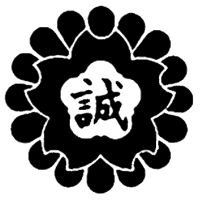
The Kyushu Seido-kai was a yakuza organization based in Fukuoka Prefecture on the Kyushu island of Japan, with an estimated 380 active members. Headquartered in the southern Fukuoka region of Omuta, the Kyushu Seido-kai maintains its offices in five other prefectures including Tokyo.

Bodigaado Kiba: Hissatsu sankaku tobi, also known as Bodyguard Kiba 2, is a 1973 Japanese martial arts film starring Sonny Chiba. It is the sequel to the earlier 1973 film Bodyguard Kiba based on an action manga by Ikki Kajiwara. Etsuko Shihomi makes her screen acting debut, replacing actress Yayoi Watanabe in the role of Naoto Kiba's sister Maki. Shihomi had previously worked as a stunt double for Watanabe in the earlier film Bodyguard Kiba. The movie is also considered a break-through for Masashi Ishibashi, who would be asked by Sonny Chiba to play a major role in the 1974 movie, The Street Fighter.
Jirō Yabuki also known as Jirō Chiba is a retired Japanese actor. His older brother was Sonny Chiba. He is known for playing the role of Kazuya Taki in the tokusatsu superhero series Kamen Rider.
Masashi Ishibashi, was a Japanese actor and martial artist. Ishibashi had an extensive career in Japanese television, where was famous as portraying villains in historical dramas, in roles such as bad lieutenants, shifty merchants, yakuza, bandits, and corrupt priests.
References
- ↑ Romaji: からて • ウォリアーズ
- ↑ Kanji: 子連れ殺人拳, lit. "Killing Fist and Child"
- ↑ "Welcome to Grindhouse: Dragon Princess/Karate Warriors". DVD Talk . Retrieved 2014-03-24.
- ↑ "Sonny Chiba Collection". Amazon. 20 November 2007. Retrieved 2017-08-19.